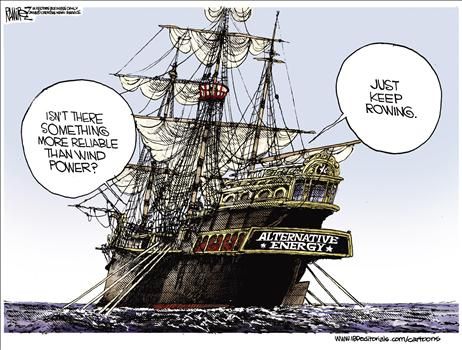And if the concept of drilling on oil leases goes right over the head of some and those same folks are not considering the role of Congress in keeping the oil companies from drilling where the oil is--a reminder here:

I suppose a crash course in those awful oil speculators that Nancy Pelosi wants to crush won't register with them either. But let's try:
Scapegoating Speculators
by Walter Williams PhD
July 9, 2008
Despite Congress' periodic hauling of weak-kneed oil executives before their committees to charge them with collusion and price-gouging, subsequent federal investigations turn up no evidence to support the charges. Right now oil company executives are getting a bit of a respite as Congress has turned its attention to crude oil speculators, blaming them for high oil prices and calling for tighter control over commodity futures trading.
Let's look at the futures market and for simplicity use corn futures discussed in my May 28th column titled "Futures Market." While corn is different from oil, both obey the laws of supply and demand, just as humans are very different from bricks but both obey the laws of gravity.
Say that today's price of corn is $7 a bushel. I have a hunch that because of Midwest flooding, higher demand due to droughts and war in other parts of the world, that in May 2009, corn will sell for $12 a bushel. I stand to make a lot of money by buying corn now for $7 a bushel, holding it, and in May 2009 selling it for $12 a bushel. If many speculators share my hunch and buy more corn now, today's price, sometimes called the spot price, is going to rise let's say to $10 a bushel.
Higher prices for corn, and everything made from corn, might give rise to consumer complaints. While Congress can't stop the Midwest rain, droughts and wars in far off places, it can scapegoat speculators. Let's say that Congress outlaws the corn futures market, or makes futures trading more costly. Doing so will definitely lower the spot price of corn. The price might return to $7 a bushel, making corn consumption once again "affordable." You might exclaim, "Isn't Congress wonderful?" But what about May 2009?
Suppose the Midwest floods have a significant impact on corn production; there's drought and war in far off places raising the demand for corn exports. What do you predict will be the availability and prices of corn in May 2009 after Congress has outlawed, or made futures trading more difficult?
If you answer less corn and much higher prices, go to the head of the class. By outlawing or impeding futures trading in corn, Congress encouraged Americans to ignore the future. Had Congress not interfered, people would use less corn now, making more available in May 2009. Thus, one of very valuable functions performed by the speculator is the allocation of resources over time.
It makes sense to take the future into account when making consumption decisions today. The futures market, by the way, is no bed of roses. My hunch about corn supply and demand conditions might be dead wrong. Its May 2009 price might be $3 a bushel and I would have to sell at a loss. Futures trading is risky business.
Congressional attacks on speculation do not alter the oil market's fundamental demand and supply conditions. What would lower the long-term price of oil is for Congress to permit exploration for the estimated billions upon billions of barrels of oil domestically available, not to mention the estimated trillion-plus barrels of shale oil in Wyoming, Colorado and Utah.
Some politicians pooh-pooh calls for drilling, saying it would take five or 10 years to recover the oil. I guarantee you we would begin to see a reduction in today's prices even if it took five to 10 years for us to get the first barrel. Put yourself in the place of an OPEC member knowing there would be a greater supply of U.S. oil five or 10 years, hence maybe driving oil prices lower to say $40 a barrel. What will you want to do now while oil is $130 a barrel? You would want to sell as much oil now and OPEC's collective efforts to do so would put downward pressures on current oil prices. Right now the U.S. Congress is OPEC's staunchest ally
GMU EDU LINK
